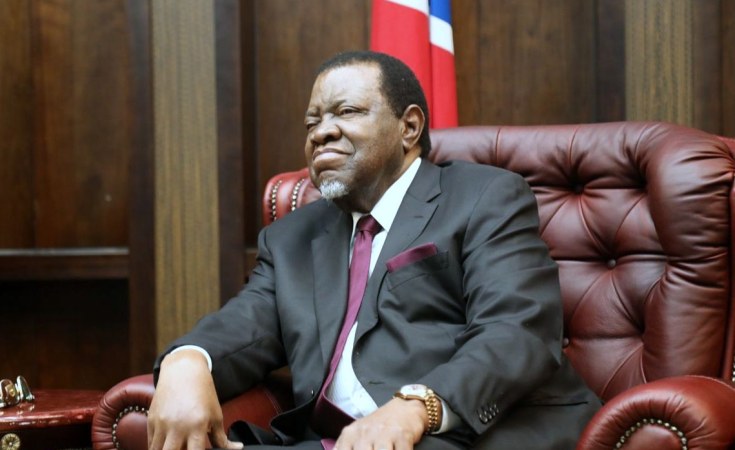Commentators and opposition politicians are calling for the scrapping of the law that gives the head of state the power to appoint regional governors.
Political analyst Joseph Diescho says the current situation is "a recipé for conflict waiting to happen".
He says the practice is inconsistent with democratic and parliamentary democracy to impose officers with no mandate and accountability onto the people they govern.
"It is patently undemocratic and unintelligent to have a system where the president appoints people through arbitrary imperial decrees to carry his water.
"Parliament should step in to abolish this system in the interest of peace, democracy and sustainable development," he says.
He says the current system of appointing governors adds no value to the decentralisation of governance, adding they are merely "used to spy" on elected regional councillors for the president.
"These so-called governors live in fear of being removed any time, and they have no contract with the residents in the regions," Diescho says.
This comes after Kavango East regional councillors have prohibited regional governor Bonifatius Wakudomo from attending council meetings.
The councillors in a letter to president Hage Geingob dated 28 December 2023 expressed discontent with Wakudumo's actions.
They cited several grievances, including a unilateral visitation programme to constituencies without involving regional councillors.
They alleged that the president's action is divisive and could impact community unity.
Additionally the council accused Wakudumo of disregarding council resolutions and usurping decision-making authority.
According to the councillors, he allocated a council house to his private secretary without proper approval and despite council objections.
The councillors also alleged that Wakudumo bypassed council involvement in significant regional matters, including agreements with the Cuando Cubango province in Angola.
The councillors further allege that Wakudumo has disrupted crucial meetings, such as with the Canadian exploration company ReconAfrica, sidelining the council's role in critical decisions.
"Collectively on 28 December 2023, we as council members took a decision to report this matter to your esteemed office for mediation, and we collectively took a decision to ban the governor from attending future council meetings until our differences are resolved," reads the letter, which has been signed by all six councillors.
Wakudumo has confirmed that he has seen the letter on social media.
"The letter was addressed to the head of state, and I can only react once I have engaged the head of state, who is my appointing authority," he has said.
Presidential spokesperson Alfredo Hengari on Thursday said the president is yet to study the content of the letter, and he can therefore not comment at this stage.
He said the reasons why the law on the president's authority to appoint governors was changed are still valid.
The Ministry of Urban and Rural Development transferred regional governors and support staff to the Presidency in 2022.
Regional governors were initially regional councillors elected by communities to form a regional government.
They would among themselves elect a chairperson who was then automatically the governor.
Regional councillors remain the only public representatives directly elected to identified constituencies. In 2020 the Namibian parliament passed legislation that granted the president the power to appoint regional governors, effectively eliminating their election to office as was the law.
'WEAKENED POWERS'
Former parliamentarian and Swapo member Gerhard Tötemeyer says the regional governance and administration in the present form was not part of what the ruling party intended when it devised constitutional plans for an independent Namibia in exile.
"The appointment of a governor by the president could potentially weaken the policy-making powers of regional councils. They are now exposed to interventions by the central government via the regional governors," he says.
He, however, says some governors take note of the limitations of their authority and act "sensitively".
He singles out Erongo governor Neville Andre, who does not intervene in the activities of regional councils, Tötemeyer says.
"He is aware of his right to remind the Erongo Regional Council of its assigned tasks and the performance thereof."
Dudu Murorua from the United Democratic Front was one of the last crop of opposition party governors, governing the Kunene region from 2005 until the law was amended.
He agrees with Diescho, saying the fact that all current governors are members of the ruling party is undemocratic.
"I don't know why president Hage Geingob uses the phrase 'no one should be left out' if he only appoints party cadres," Murorua says. Former opposition local authority councillor Whiteman Martin says power must be given back to the people.
"The governors must stop harassing councillors and chief regional officers. Currently, it's as if the chief regional officers, who are the administrative heads of a region, no longer have jobs, or is their duty now only to send out memos?" he asks.


